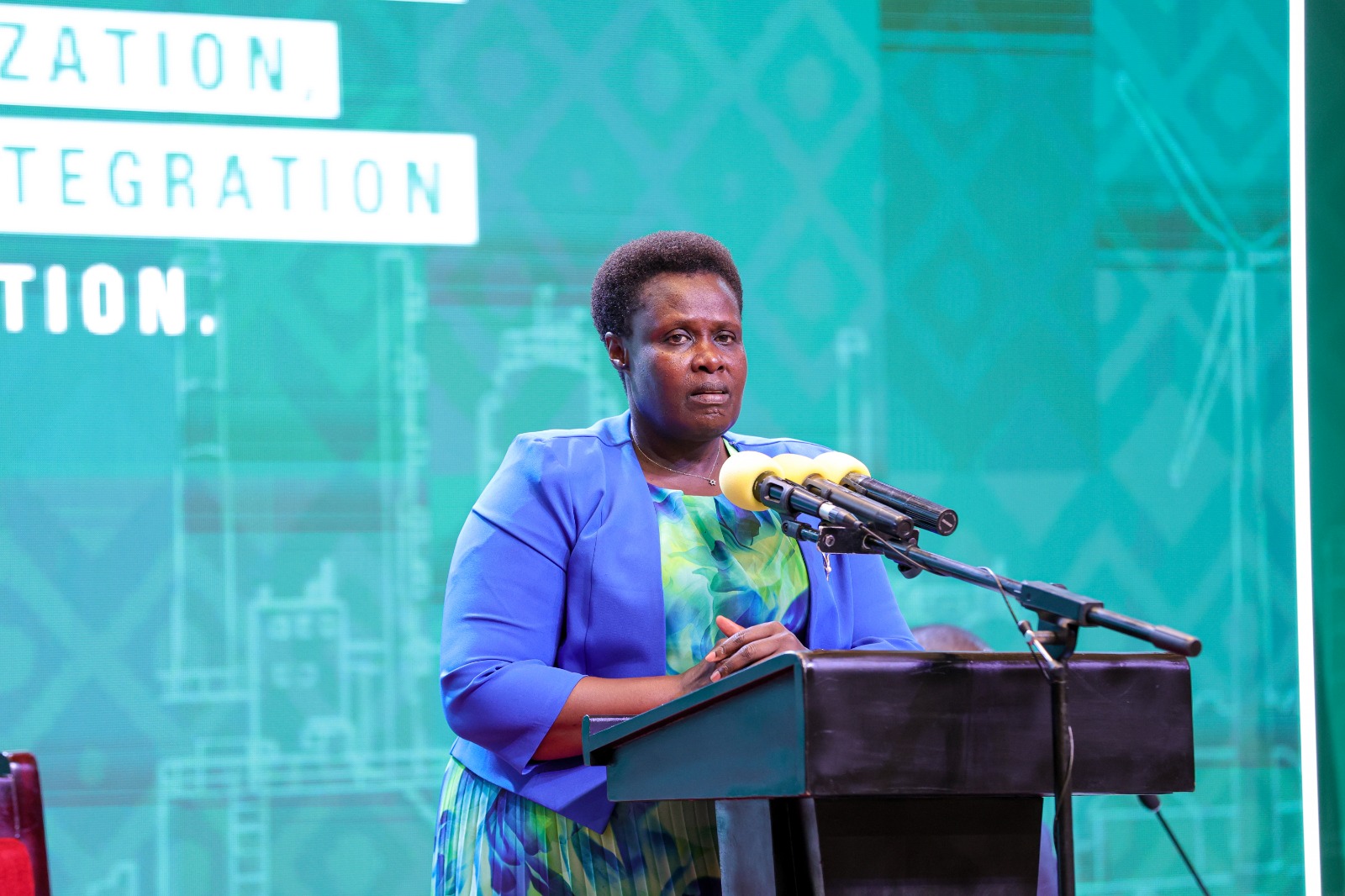President Museveni has called on African leaders to prioritise industrialisation and value addition as the continent’s surest path to economic transformation and long-term prosperity.
In remarks delivered on his behalf by Vice President Maj. (Rtd) Jessica Alupo, the President noted that despite Africa’s population of 1.25 billion—and a projected 2.5 billion by 2030—the continent contributes only 10.4% to its continental GDP and a mere 2% of global manufacturing output. He said this imbalance must change if Africa is to secure meaningful development.
The President’s message was delivered to more than 500 delegates attending the African Industrialisation Day celebrations in Munyonyo, marking the climax of the African Industrialisation Week hosted by the Government of Uganda.
The week-long activities were organised by the Ministry of Trade, Industry and Cooperatives in partnership with the African Union and other stakeholders under the theme “Transforming Africa's Economy through Sustainable Industrialisation, Regional Integration and Innovation.”
Museveni highlighted Uganda’s progress, noting that the country has become a net exporter of many products it previously imported.
These include steel, cement, pharmaceuticals, paper, processed foods, and dairy products—an achievement he attributed to deliberate government investment in industrial growth.
Despite the progress, the President pointed out persistent challenges that must be addressed for Africa to fully realise its industrial potential.
These include ideological disorientation, sectarian tendencies based on tribe and religion, poor infrastructure, high transport costs, fragmented markets, and interference with the private sector. Tackling these obstacles, he said, will unlock the continent’s capacity to compete globally.
Vice President Alupo underscored the importance of women’s empowerment in driving industrial and economic transformation. She commended the resilience and contribution of women in leadership, enterprise, and innovation.
Her message was echoed by State Minister for Trade, Industry and Cooperatives, Wilson Mbadi, who emphasised that enhanced cross-border trade would expand markets for African countries and accelerate continental integration.
Other delegates stressed the centrality of peace, security, and stability in enabling industrialisation and socio-economic development. They also applauded Uganda’s strides in gender parity, citing the Vice President and other women leaders as examples of inclusive progress.
During the event, Vice President Alupo officially inaugurated the first-ever Women’s Industrial Park in Africa, set to be hosted in Uganda. The facility is expected to provide new opportunities for female entrepreneurs, expand industrial capacity, and promote gender-responsive development.
The African Industrialisation Week concluded with a renewed continental commitment to strengthening manufacturing, unity, and innovation as engines of economic growth.


